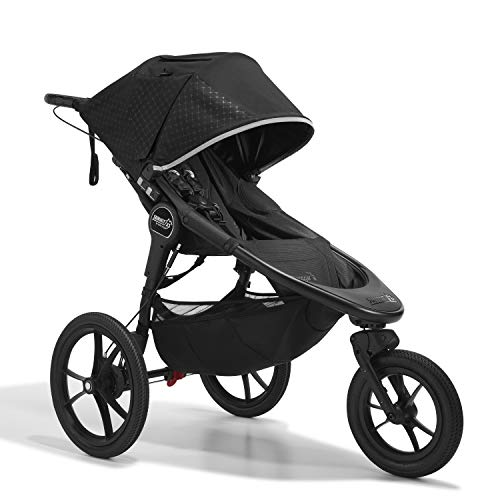Understanding Prams and Pushchairs: A Comprehensive Guide
When getting in the world of parenthood, one of the most essential choices to make includes picking the best equipment for carrying a newborn or young child. Among the top competitors for this function are prams and pushchairs. Both serve the basic function of assisting moms and dads and caregivers carry their kids conveniently, but they have unique functions, benefits, and utilize cases that set them apart. This short article aims to explore prams and pushchairs extensive, assisting prospective purchasers through their important differences, benefits, and functions, and dealing with regularly asked concerns.
What is a Pram?
A pram, short for "perambulator," is a kind of car created particularly for infants. It features a totally reclining seat or bassinet, so a baby can lie flat while being carried. This is particularly important for newborns whose spinal columns are still developing. Prams often have larger wheels, supplying a smoother trip on numerous surfaces.
Secret Features of Prams:
- Fully Reclining Seat: Allowing infants to lie flat.
- Bassinet Design: Some designs include a detachable bassinet.
- Large Interior: Adequate area for the child to move conveniently.
- Robust Frame: Designed to be more steady, preferably matched for urban and rural locations.
Benefits of Prams:
- Comfort: Provide a comfortable area for the baby.
- Adaptability: Many can be converted to a pushchair as the kid grows.
- Stability: Larger wheels and frames offer higher stability, especially on irregular surface.
What is a Pushchair?
A pushchair is a light-weight alternative often used for toddlers. Unlike prams, pushchairs generally feature a seat that can sit upright and may not offer a totally reclining option, making them suitable for older babies who can support their heads and necks. Many modern pushchairs come with various features tailored towards benefit for the moms and dad and comfort for the kid.
Secret Features of Pushchairs:
- Multi-position Seats: Can cater to sitting upright or reclining alternatives.
- Lightweight Design: Easier to bring and maneuver.
- Foldable Framework: Often fold up compactly for simple storage and transport.
- Larger Storage Baskets: Convenient for carrying baby basics.
Advantages of Pushchairs:
- Lightweight and Portability: Easy to transfer and save.
- Steerability: Smaller wheels permit sharper turns.
- Accessibility: Easier access to older young children.
Key Differences Between Prams and Pushchairs
| Feature | Pram | Pushchair |
|---|---|---|
| Age Recommendation | Newborn to 6 months | 6 months to 4 years |
| Seat Position | Completely reclined | Multi-position |
| Weight | Much heavier | Lightweight |
| Terrain Usage | Appropriate for all terrains | Best for city/urban environments |
| Size | Larger, bulkier | Compact, simple to fold |
Picking the Right Option for Your Needs
The decision to choose in between a pram and a pushchair mostly depends upon your specific lifestyle and your kid's age. Here is a breakdown of factors to consider to assist narrow down the options:
Considerations for Prams:
- If you reside in a backwoods with rough terrain, a strong pram may be preferable.
- If you prepare to utilize it for long walks or trips, the comfort of a pram can be beneficial.
- Suitable for moms and dads who desire a model that will comfortably support a newborn.
Considerations for Pushchairs:
- If you need something lightweight for city living or public transportation, a pushchair might be a better fit.
- For parents who desire a versatile alternative for toddlers with numerous position settings.
- If storage area is an issue, the compact nature of pushchairs offers an option.
Typical FAQs
1. Can My Source utilize a pushchair for a newborn?
While many modern pushchairs use reclining seats that can be utilized for newborns, it's usually recommended to utilize a pram or a pushchair with a bassinet option for appropriate assistance.
2. For how long can you utilize a pram or a pushchair?
Prams are typically utilized for infants approximately six months, while pushchairs can be appropriate for children up to 4 years or more, depending upon the model.
3. Are prams more pricey than pushchairs?
Prams are often more expensive due to their design, flexibility, and materials. However, expenses can vary widely depending upon brand name, features, and age suggestions.
4. Is it essential to have both a pram and a pushchair?
Not necessarily. Lots of parents go with a 2-in-1 system that combines both functions, enabling them to adapt as their kid grows.
5. What should I focus on in selecting one?
Focus on safety functions, convenience, weight, size, and how well it fits into your way of life. Read reviews, and test drive various designs when possible.
Selecting between a pram and a pushchair is an important choice for brand-new parents and caretakers. Both choices have distinct features that deal with different age ranges and lifestyles. By understanding these essential differences, benefits, and suggestions, moms and dads can make a more informed choice that meets their family's needs. Whether starting a leisurely stroll in the park or navigating the stress of city streets, the ideal pram or pushchair can boost the experience, providing security and convenience for both the child and the caretaker.

